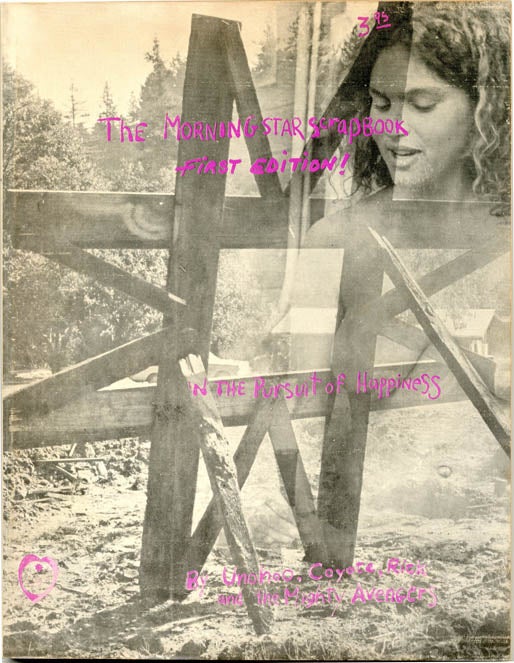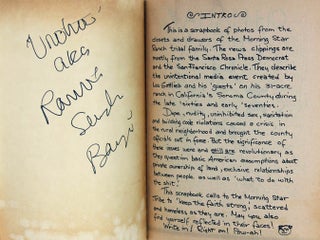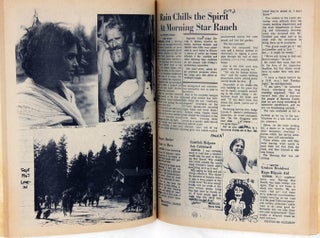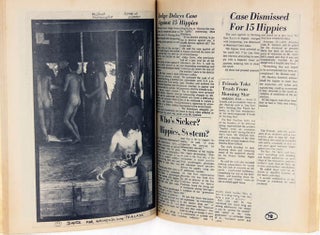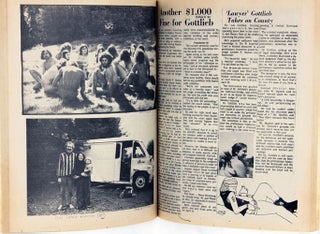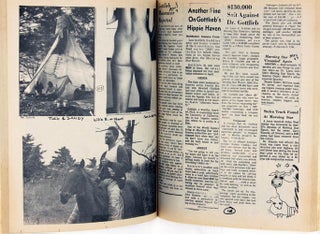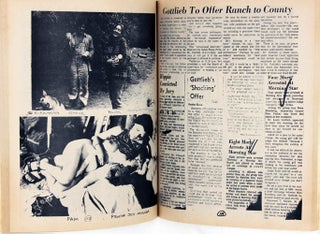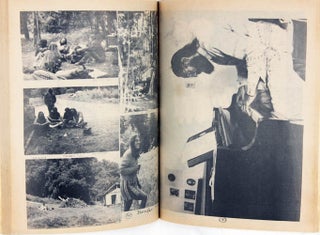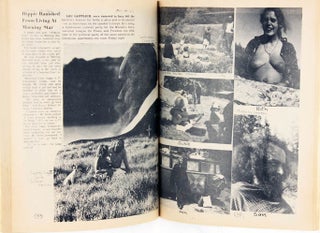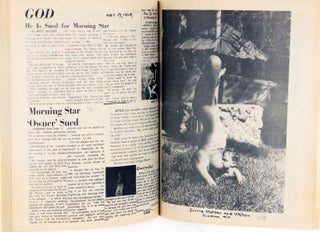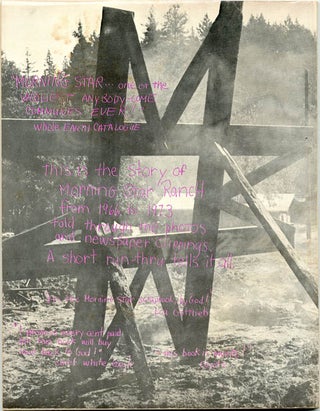134.
The Morning Star Scrapbook 'n The Pursuit of Happiness.
Occidental, CA: Friends of Morning Star, 1973. First edition. 4to. Wrps., 190pp., printed on newsprint. Illustrated throughout with photographs, along with drawings and numerous reproductions of newspaper reports.
SIGNED inside the front cover by Ramón Sender: "Unohoo aka Ramón Sender Barayón" (Sender, together with Katy, his terrier dog, became the first residents of the Morning Star commune in May 1966; he previously co-founded the San Francisco Tape Music Center, and in January 1966 co-produced the Trips Festival with Stewart Brand and Ken Kesey, where he first met Lou Gottlieb).
The introduction states that "This is a scrapbook of photos from the closets and drawers of the Morning Star tribal family... They describe the unintentional media event created by Lou Gottlieb and his 'guests' on his 31-acre ranch in California's Sonoma County during the late 'sixties and early 'seventies. Dope, nudity, uninhibited sex, sanitation and building code violations caused a crisis in the rural neighborhood and brought the county officials out in force. But the significance of these issues were and still are revolutionary as they question basic American assumptions about private ownership of land, exclusive relationships between people as well as 'what to do with the shit'."
The meeting of Gottlieb, Ramón Sender and Stewart Brand, all of them loosely affiliated with or at least influenced by the Diggers, led to Gottlieb’s declaration of Open Land in 1966 and his coining of the acronym LATWIDNO (Land Access To Which Is Denied No One) in reference to Morning Star and other similar communal-living experiments (the manifesto for it forms part of the book). In one of the contemporary local press reports the book reproduces, Gottlieb expresses his scepticism of technology, stating that his land belonged to the "first wave of an ocean of technologically unemployables. The cybernation is in its early snowball stages."
Sender later recalled that by the end of the summer of 1966 there were about ten commune members resident there, including himself, Gottlieb, Bruce Baillie, and Ben and Rain Jacopetti of the Open Theater in Berkeley (whose multimedia 'Revelations' shows had been a precursor to the Trips Festival they would later participate in). The number increased to about thirty-five by the end of the year, including some Diggers. Morning Star subsequently became one of the largest and most significant Californian communes to embrace Open Land, but years of legal battles with the county (the first drug bust occurred in April 1967), and conflict within the commune and with neighbours, gradually brought it into decline. By 1973, the year of the book's publication, it was left uninhabited, aside from the occasional return of Lou Gottlieb.
Inside front and rear wrappers browned and age-toned, o/w Near Fine.
 Back to top
Back to top

